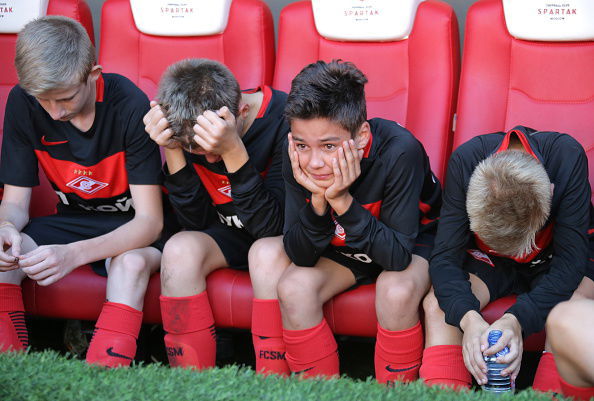Schaffhausen: the benefits of losing

Competition is healthy for everyone, including children, even when they don’t win.
May 21, 2017
Contrary to popular belief, when you lose, you are, by definition, a loser! In fact, maybe losing isn’t that bad after all as it is good for us.
In our everybody-gets-a-trophy-because-there-are-no-winners society, many have a habit of forgetting what losing and competing teaches us – both directly and indirectly.
Competition pushes you to be the best you can be, cultivates a work ethic that sets you apart, and prepares you for the curveballs the real world will throw at you.
In the past few years there has been support in youth teams around the world to stop keeping score. For example, in Canada the Alberta Soccer Association will not be keeping score in games for players 12-and-under. This cautious yet accepted way of coaching seems innocent; however, it does more harm than good.
Humans are natural competitors and games are played to see who will win. Mere competition seems to have worked wonders given the strides we’ve made for all of humanity. Would we have really landed on the moon had we not competed with Russia in the Space Race? Probably not. Not only were we trying to beat Russia to it, but we were doing it out of genuine love and pride for our country. Simply ignoring opportunities to compete with your peers deprives you of basic learning tools that are used later in life.
Though the parents of the ASA soccer players may argue that “youth sports just aren’t what they used to be anymore,” many fail to recognize that some parents are the ones pushing their kids too far. Whether it be acting theatrical in the stands when somebody butchers it out on the field or arguing with umpires and referees when a “bad call” is made.
As a result, players mimic and are socially influenced by what they see. Instead of completely eradicating the idea of competing youth because it may lead to turmoil, maybe we need to rethink how we react to sports games, especially around children who are so easily influenced.
Now, is it ridiculous that there are, say, world championships for golfers 12 and under? Yes. But does this mean we should get rid of every golf competition for 12-year-olds? No. All it means is that we need to know when to stop – when enough is enough.
Quite frankly, at 12 years old kids are happy to see that they made everyone else happy. Somewhere along the line coaches who believe in this idea of anti-competition need to rid their minds of it so our youth can live up to their potential.
Competition is healthy, especially for development; however, we need to make sure that it is just that – healthy. No more yelling at 16-year-old umpires who are making calls for 8U tee-ball. Clearly, there is room for improvement in the world obsession of youth sports, but eliminating aspects of activities that advances children’s development is no way to solve a problem.
















